Hyundai's Manufacturing Excellence Eased Making All-new i20
- By MT Bureau
- October 27, 2020
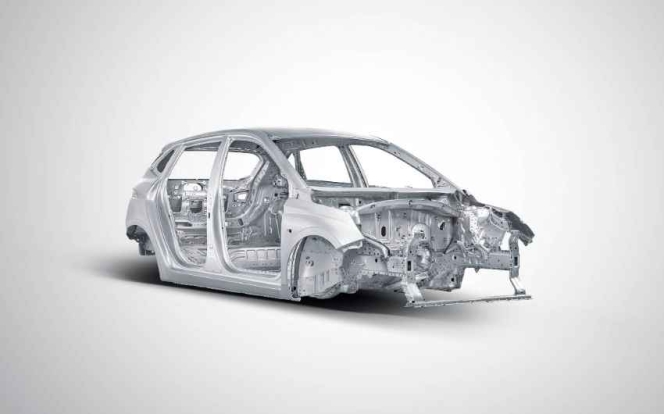

Hyundai Motor India has showcased its Manufacturing Excellence through the origins of the all-new i20, a Masterpiece of Human Centric Engineering. With unassailable standards and processes, the company has created the all-new i20 that is perfected through a prudent use of Industry 4.0 and Automation.
Ganesh Mani S, Director – Production, Hyundai Motor India, said, “Our focus has remained on ensuring supreme levels of manufacturing excellence. This has perfectly culminated in the all-new i20, delivering robust and reliable performance. With our 24-year rich manufacturing heritage of ‘Make in India’, the all-new i20 is yet another benchmark brand from Hyundai that is an edge above the rest.”
THE ROBUST SUPERSTRUCTURE:
- Featuring an extensive application of 66 % Advanced & High-Strength Steel, Hyundai has created a Robust Superstructure to enhance crash worthiness and make the car lighter.
- This super structure is created, using 5,400 Tons Stamping at the Press Shop
- Incorporating an Online Condition Monitoring systems to monitor machine vibration, Hyundai offers enhanced process quality, changing shapes of metal in elegant curves & creases.
- The use of advanced Digital gauge to check the Panel thinning distribution - Crack, Neck Prediction methodology that helps in manufacturing ZERO Crack panels.
- Hyundai has used ‘High quality grade coils’ for sculpturing aesthetics and modern look of the all-new i20.
- Use of 3D scanning of Parts – to analyse and strengthen the press panel parts accuracy and precision

THE IMPECCABLE APPEAL:
- The all-new i20’s dynamic and futuristic appeal is created at the Body Shop on the Global Body Build Line.
- Using technology enabled high-quality welding process that features over 450 4th Gen Robots offering 100 % Weld Automation with over 4,000 welding spots in each car, and more than 70 cars being processed every hour
- Robots on the Line offer a glimpse of the flawless manufacturing process that gives a definitive shape to the origins of the all-new i20.
- Body shop has three stage advance quality conformation where our quality system is enable with ‘Quality 4.0 techniques’
- Intelligent weld monitoring
- Real time weld quality confirmation system [Colour tip sensor]
- Real time sealer quality confirmation system
- In house Data scientists in shop floor apply Deep learning techniques for Quality confirmation of Mastic Sealer through Vision Inspection system
THE VIBRANT CHARISMA:
- Vivid and striking colours of the all-new i20 are curated at the Paint Shop where High Throw Power 7th Generation Electro Deposition Paint is applied for long lasting Rust Warranty and corrosion resistance.
- The vibrant charisma of the all-new i20 is processed in seamless automation line that features 72 Robots ensuring the conformity to supreme quality standards and long lasting stylish & glossy looks.
- Using an Anode Cell Current Monitoring system, Hyundai has enhanced the paint application quality through an Online Current monitoring method.
THE DYNAMIC PERFORMANCE:
- Through immense research, hours of design, validation and testing of multiple iterations of operating condition, the all-new i20 has been prepared to offer rip-roaring performance.
- To give these engines robust performance, Hyundai has employed technologically superior treatment that enhances its performance on road.
- The in-house Endurance lab tests the performance with load condition for 849 Hours and without load condition for 5 lakhs cycles for transmission systems, and over 350 hours for the Engine system, to ensure enhanced durability
- Hyundai also employs a Cold Test Bed that is an eco-friendly way of testing the engines over 15 parameters, without burning fuel. It is a fully automated system in which 100% of the produced engines are tested before assembling in vehicles.
- At the Powertrain Shop, Hyundai manufactures both diesel & petrol engines using 700 CNC Machines with Integrated SPC (Statistical Process Control).
- With High Speed Vision (60 frames/ minute) 58 Engine parts are verified, offering robust Quality for a Pleasurable Driving Experience.

THE PARADIGM OF QUALITY:
- To drive enhanced convenience and confidence, Hyundai’s assembly lines are ready to convert robust shells into fully functioning cars in the Assembly Shop.
- Here 80% of the car’s parts are fixed, preparing it through a 100% systemized 3 stage dynamic tightening confirmation that features:
- Electric tool tightening 700+ dynamic joints per car (safety and critical parts)
- Re-confirmation system across all the line (Trim, Chassis and Final line)
- Tightening quality and Sign-off interlock to ensure zero defect vehicle rollout
- Additionally, systemized part feeding method is used for maintaining quality in feeding and assembly operation using:
- Global Part Traceability Information System
- Advanced Part Management System
- Mobility Sequence Feeding System
- Trolley Scheduling System
- Through a 324-point check in HIDIS (Hyundai Integrated Digital Inspection System), Hyundai is ensuring the highest levels of conformation to quality standards.
- Each and every vehicle that rolls of the assembly line - right from the stage of panel press to complete vehicle roll out is thoroughly inspected by over 500 quality in-charge experts.
- Vehicle final inspection method is digitally enabled for assembled part specification/ type verification.
- The all-new i20 then undergoes a dynamic road test on 18 drive tracks for various road driving conditions as well as a unique leak test that is equivalent to driving through rain/water pressure that exceeds the heaviest recorded monsoons, with a shower condition of 60mm per minute or 3,600mm per hour at a pressure of 3bar.
The all-new i20 has been developed to create a Masterpiece of Human Centric Engineering that encompasses Human, Machine and Emotions, offering Quality Time to its Valued Customers.
ZF, BMW Sign Long-Term Supply Agreement For Drive Technologies
- By MT Bureau
- February 03, 2026
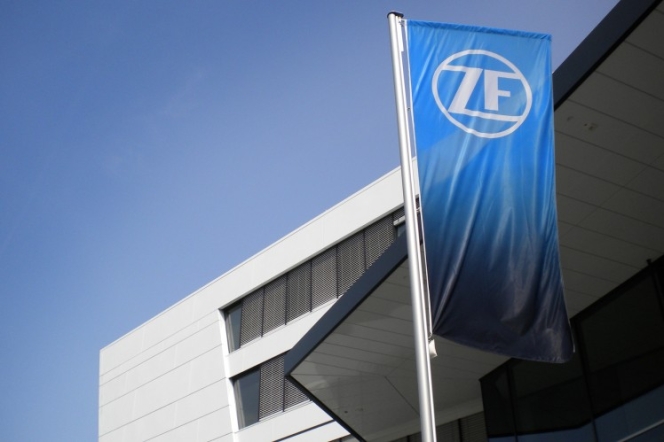
German tier 1 supplier ZF Friedrichshafen and the BMW Group have entered into a long-term supply agreement for passenger car drive systems. The contract, valued at several billion euros, extends until the late 2030s.
The agreement focuses on the supply and continued development of the 8-speed automatic transmission (8HP). The partners aim to support low-emission mobility and maintain technological flexibility during the industry transition.
A central component of the partnership is the technical evolution of the 8HP transmission kit to meet the requirements of electrified drives. The development will focus on increasing efficiency and performance for future vehicle concepts.
Mathias Miedreich, CEO of ZF, said, “Together with BMW, we are sending a strong signal for innovation, efficiency, and sustainability in an industry undergoing dynamic change. This agreement highlights the strategic importance of our 8-speed automatic transmission as a key technology for the transformation of drive systems.”
The duration of the contract provides both ZF and BMW with planning stability in a changing market. ZF aims to strengthen its position as a system supplier while reducing risks through close collaboration with the carmaker.
Sebastian Schmitt, Head of ZF's Electrified Drive Technologies division, explained, “The new agreement with BMW shows how important long-term planning horizons are for technological advancements. It creates clarity and stability for both companies and enables us to align the next generation of the 8HP specifically toward efficiency, performance, and long-term viability.”
Leapmotor Selects Aumovio For Safety Technologies
- By MT Bureau
- February 02, 2026
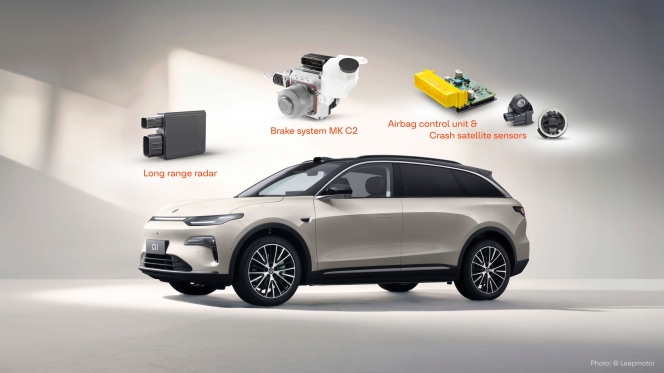
Aumovio has entered a supply agreement with Chinese electric vehicle manufacturer Leapmotor to provide safety components for the carmaker’s B and C platforms.
Several models within Leapmotor’s B platform now utilise Aumovio's long-range radar, electric parking brake and airbag control unit (ACU). Models on the C platform, including the C10, C11 and C16 SUVs, feature the latest generation of the MK C2 one-box brake system, alongside the long-range radar and ACU.
The project was completed with a development cycle approximately one-third shorter than traditional automotive timelines. Aumovio attributed its speed to ‘local-for-local’ strategy in China, where the company operates 20 sites and employs around 10,000 staff. In 2024, Aumovio held a 14 percent share of market revenue in the region.
The supplied technologies include:
- MK C2 Brake System: A unit combining the master cylinder, electronic brake system, and brake booster. It is produced locally in Shanghai.
- Long-Range Radar: A sensor with a detection range of up to 280 metres, used for driver assistance across both platforms.
- Airbag Control Unit (ACU): Integrated with crash satellite sensors, these components are manufactured in Changchun.
Boris Mergell, Head of the Safety and Motion business area at Aumovio, said, “Pairing ‘China speed’ with ‘German quality’ technologies helped us to support a rapid roll-out with our latest safety technologies. This underscores Aumovio’s course towards an adaptive powerhouse that works flexibly and closely with customers to innovate. It also shows that we continue to strengthen our customer relationships in the important market China.”
The partnership supports Leapmotor’s international presence. The B10 and B05 models, which feature Aumovio's ACU and radar technology, were showcased at the IAA 2025 in Munich as part of the manufacturer's European entry.
LTTS Secures Multi-Year Deal From Automotive OEM For Engineering And R&D
- By MT Bureau
- January 28, 2026
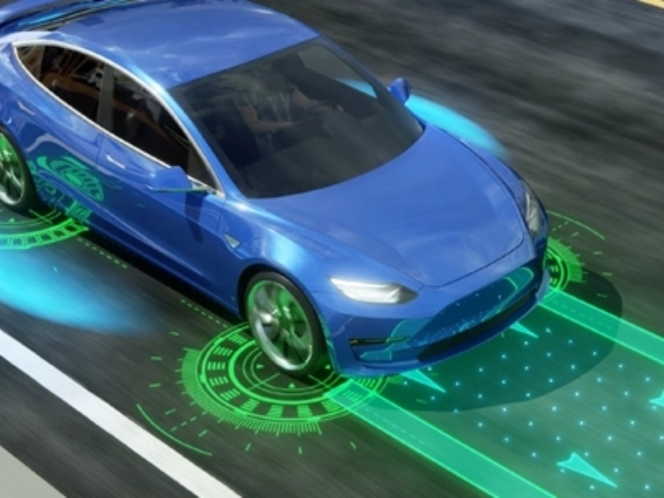
Bengaluru-headquartered ER&D company L&T Technology Services (LTTS) has announced a multi-year engagement within its mobility segment from an automotive manufacturer. The agreement involves software, connectivity and digital engineering services across vehicle technology domains. This win follows the company’s investments in R&D labs and mobility infrastructure designed for programs with global manufacturers.
The engagement covers mobility engineering capabilities, including embedded systems, digital platforms, verification and validation, cloud integration and cybersecurity. LTTS intends to use its engineering expertise and delivery frameworks to support the customer's technology roadmap.
At present, LTTS operates 22 design centres and 100 innovation labs globally.
The agreement strengthens the partnership between LTTS and the automotive manufacturer in the area of mobility engineering. The company provides design, development, and testing services across the mobility, sustainability, and tech segments.
Alind Saxena, Executive Director and President, Mobility and Tech at L&T Technology Services, said, “We are proud to deepen our partnership with the valued customer through this strategic engagement. LTTS brings together domain-led engineering, secure development practices and excellence in global delivery to accelerate the future of premium mobility. The win reflects the trust placed in our teams and our commitment to delivering world-class engineering at scale”.
Valeo And NATIX Network Partner To Develop Open-Source World Foundation Model
- By MT Bureau
- January 25, 2026
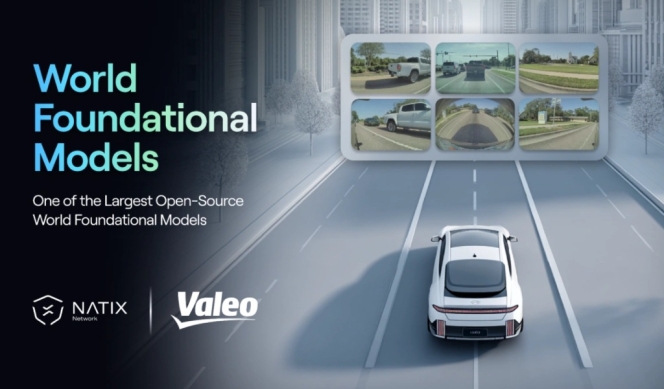
French technology company Valeo and NATIX Network have announced a partnership to develop a multi-camera World Foundation Model (WFM). The project combines Valeo’s research in artificial intelligence and generative modelling with NATIX’s decentralised physical infrastructure network (DePIN) to create an open-source platform for autonomous driving and robotics.
The initiative aims to move beyond perception-based models by creating a system capable of predicting future states and reasoning about physical interactions in a four-dimensional environment. The model will be trained using NATIX’s data network, which has collected 600,000 hours of video data across the US, Europe and Asia over seven months. This data provides the multi-camera inputs necessary for the spatial perception required by autonomous vehicles and robots.
The partnership builds upon Valeo’s existing open-source frameworks, VaViM (Video Autoregressive Model) and VaVAM (Video-Action Model). While these frameworks were previously trained primarily on front-camera datasets, the integration of NATIX’s multi-camera network expands the AI’s field of vision to 360 degrees.
Under the open-source framework, the partners will release models, datasets and training tools. This approach is intended to allow the research community to fine-tune models and benchmark physical AI across various driving conditions and geographic regions. The collaboration seeks to accelerate the deployment of end-to-end AI models by learning from real-world edge cases captured by vehicles in operation.
Marc Vrecko, Chief Executive Officer, Valeo’s Brain Division, said, “Since our creation in 2018, Valeo’s AI research center has been at the forefront of AI research in the automotive industry, especially in the fields of assisted and autonomous driving. Our goal has always been to advance mobility intelligence safely and responsibly. By combining Valeo’s generative world modeling research expertise with NATIX’s global multi-camera data, we are accelerating both the quality and the accessibility of next-generation end-to-end AI models, enabling the research community to build upon strong open models.”
Alireza Ghods, CEO and Co-Founder, NATIX, added, “WFMs are a once-in-a-generation opportunity — similar to the rise of LLMs in 2017–2020. The teams that build the first scalable world models will define the foundation of the next AI wave: Physical AIs. With our distributed multi-camera network, NATIX has a clear advantage of being able to move faster than large OEMs.”







Comments (0)
ADD COMMENT